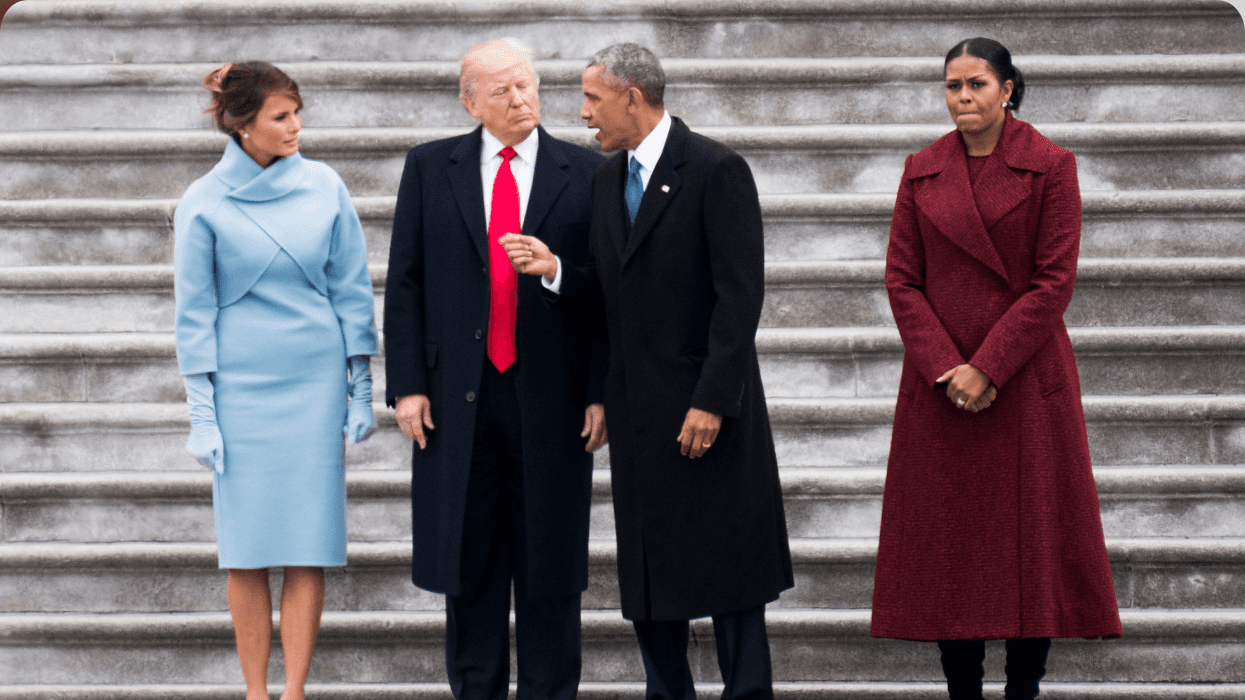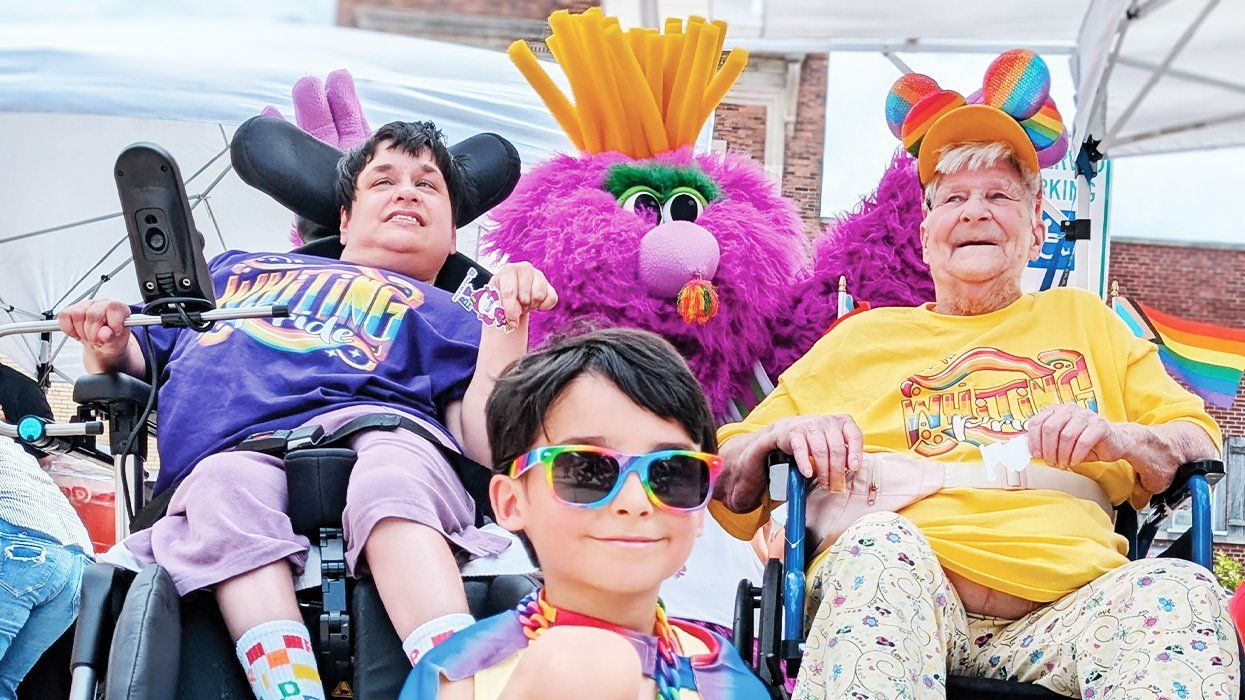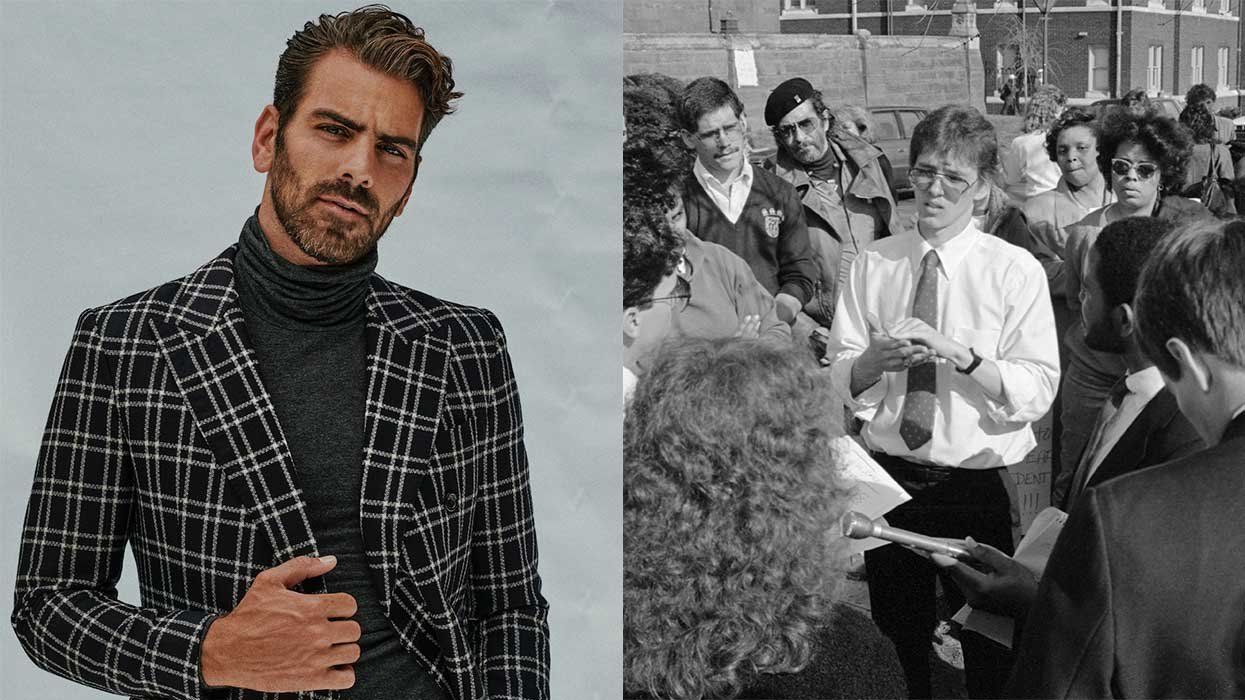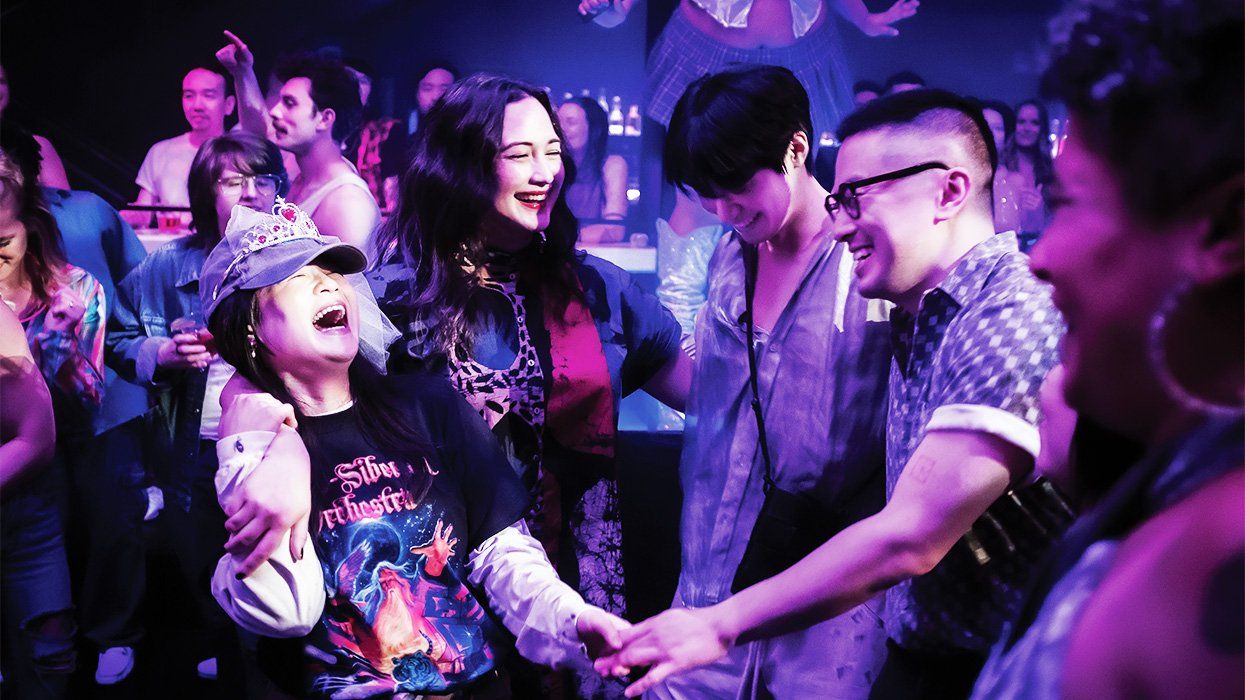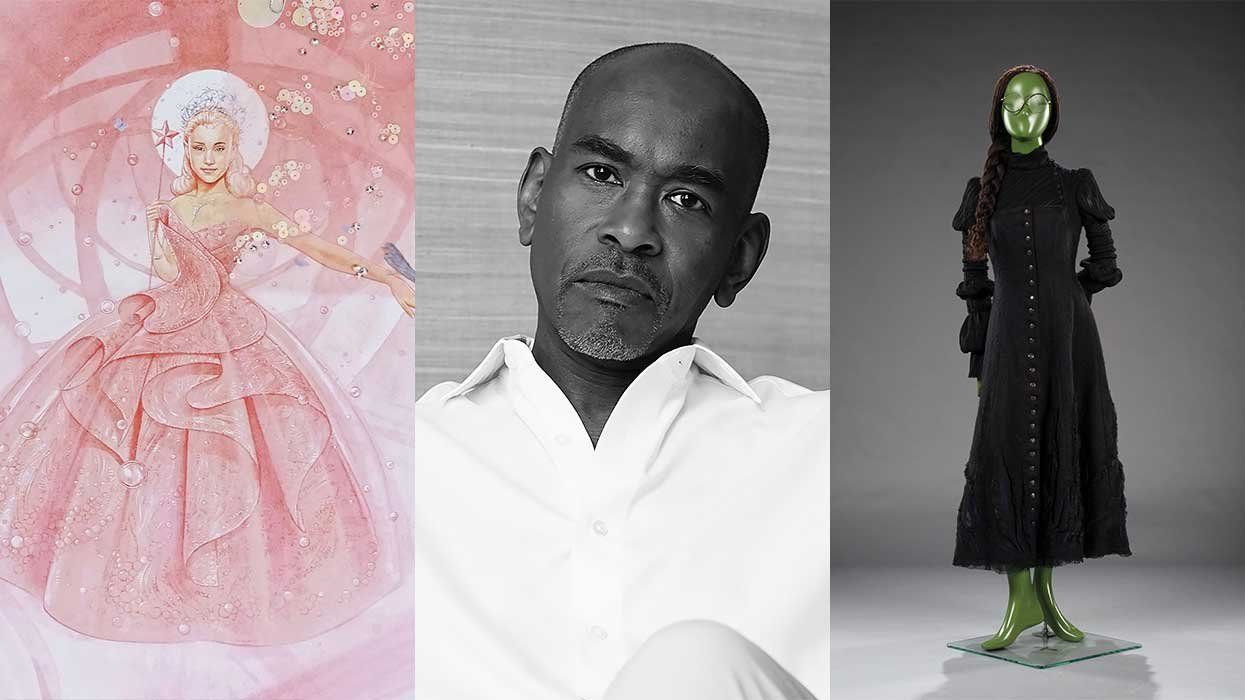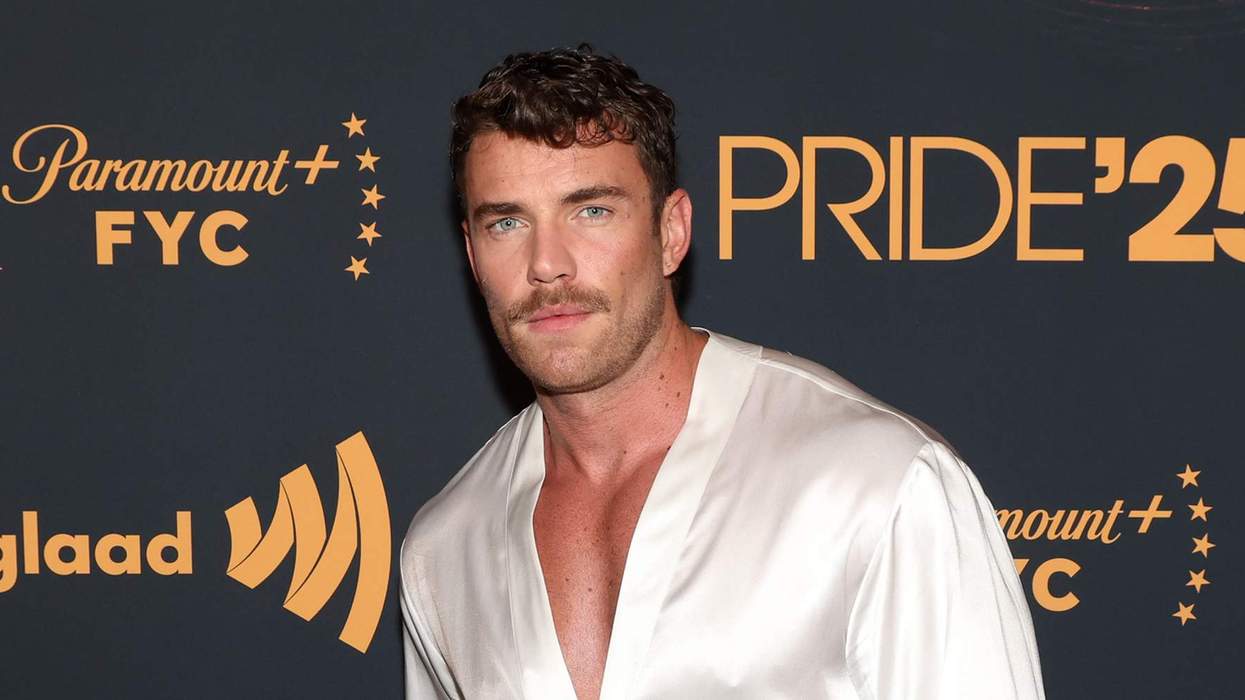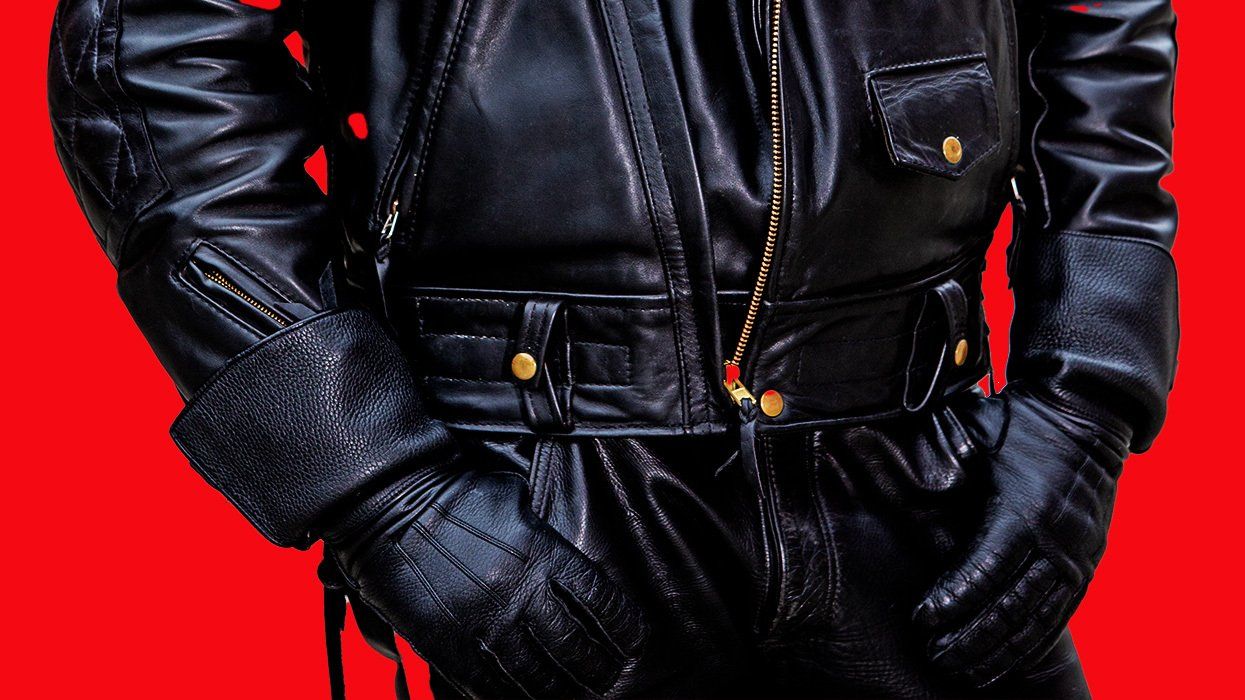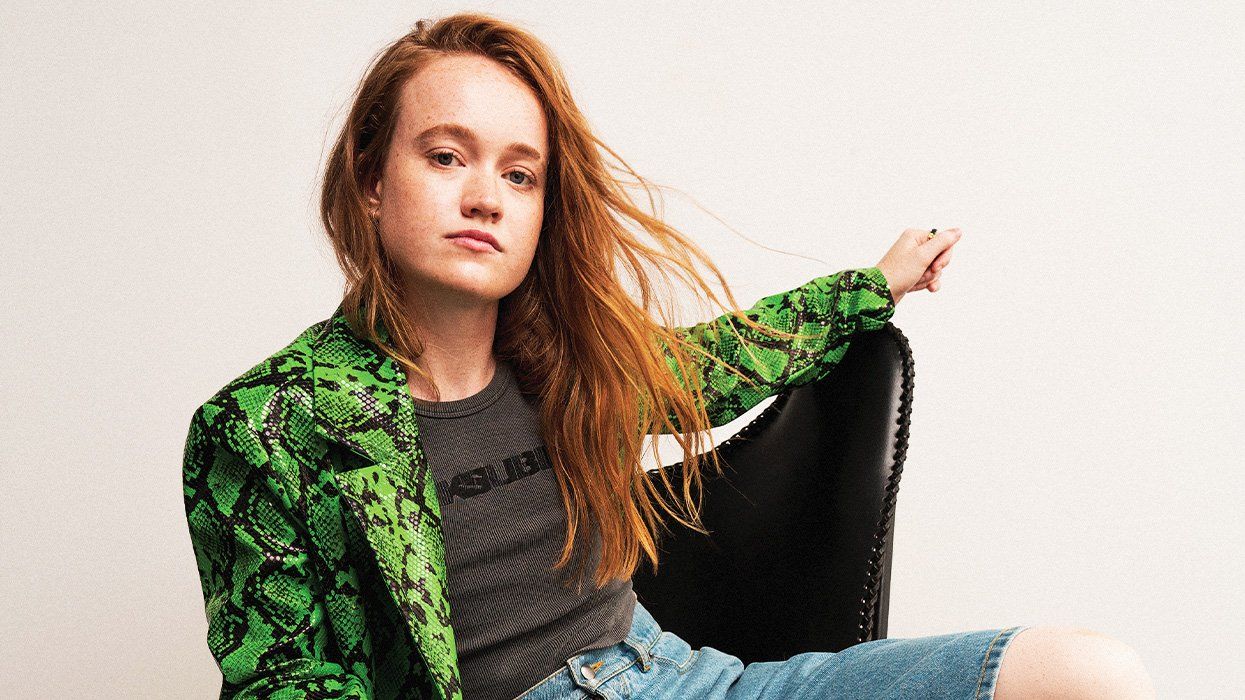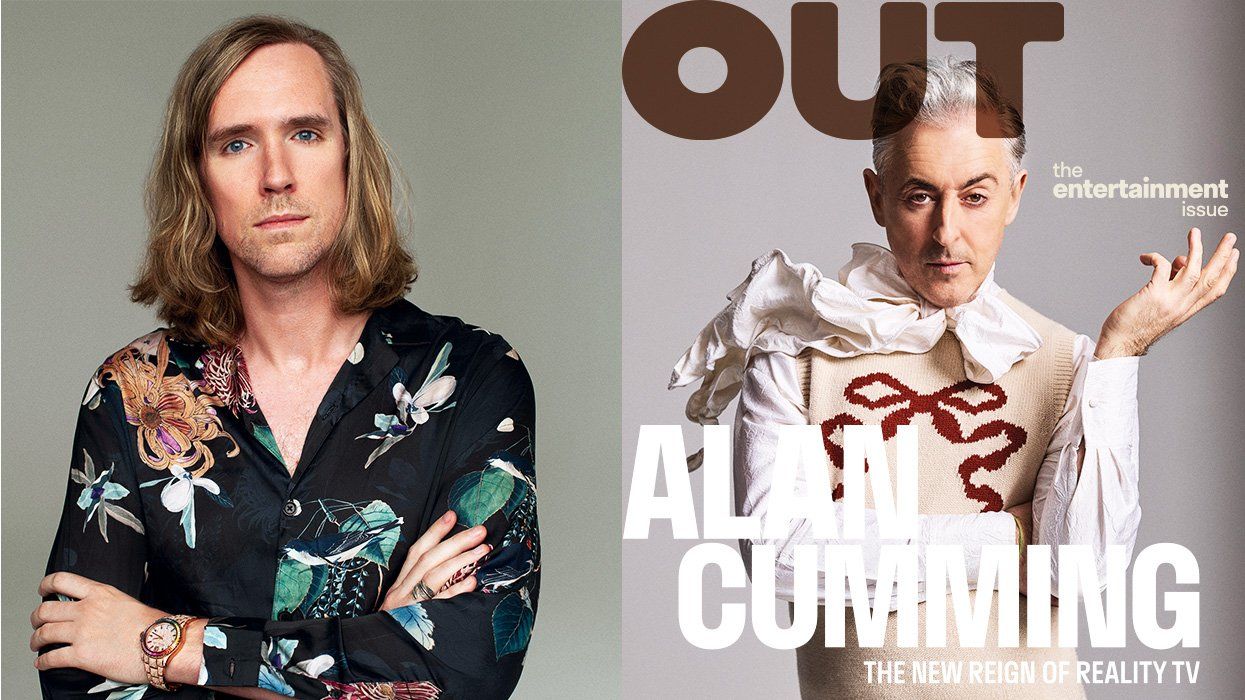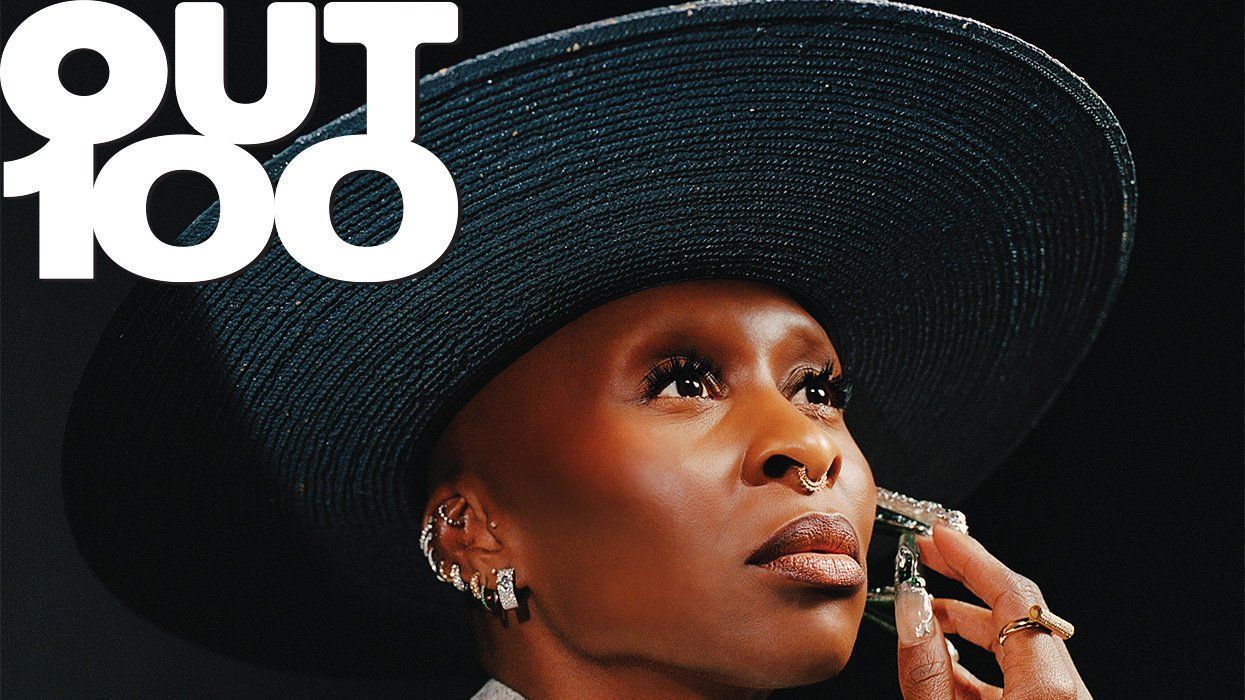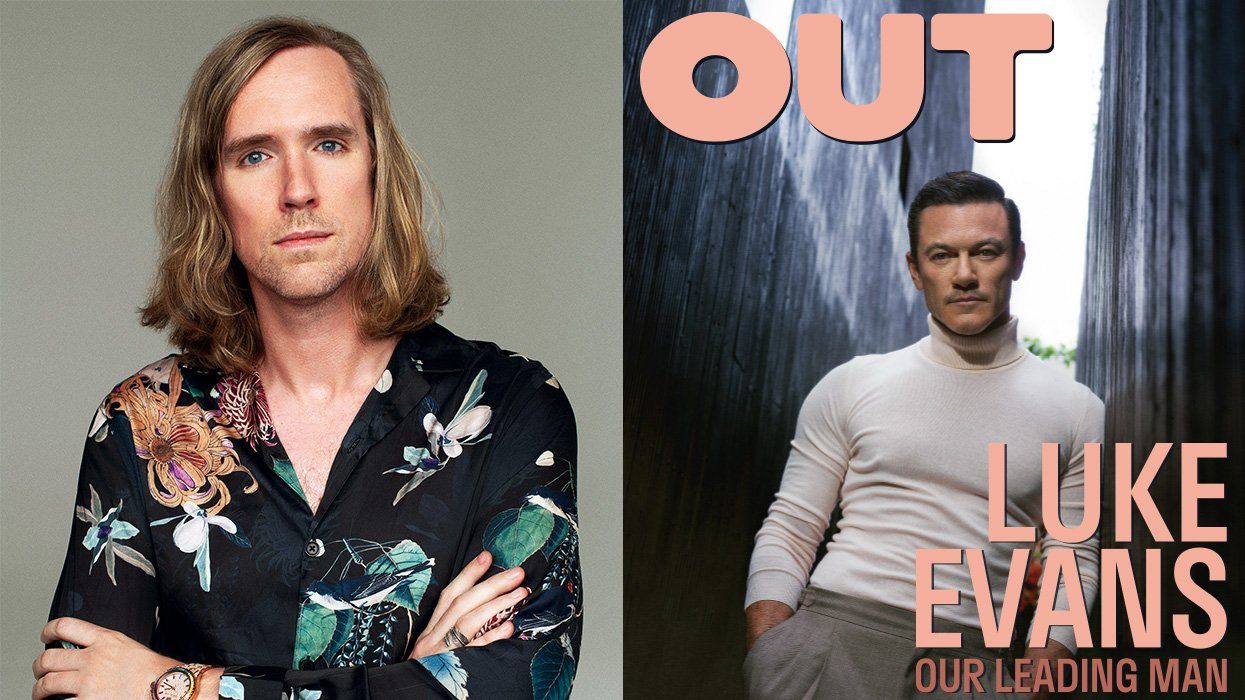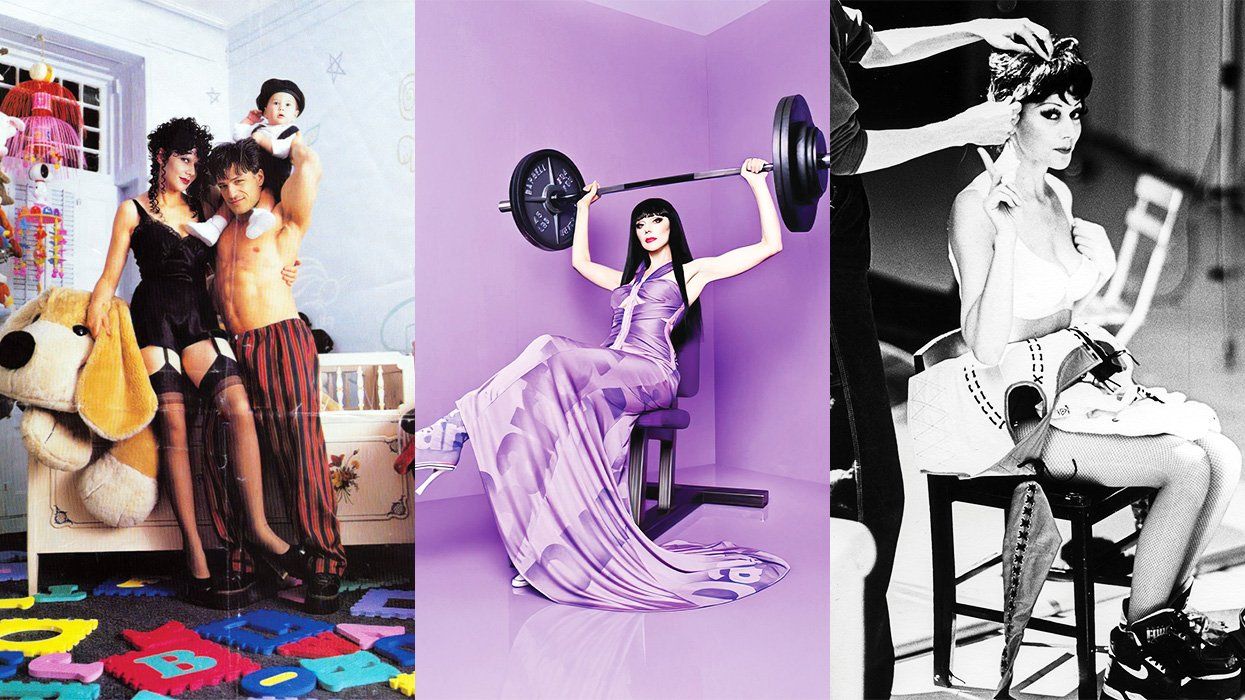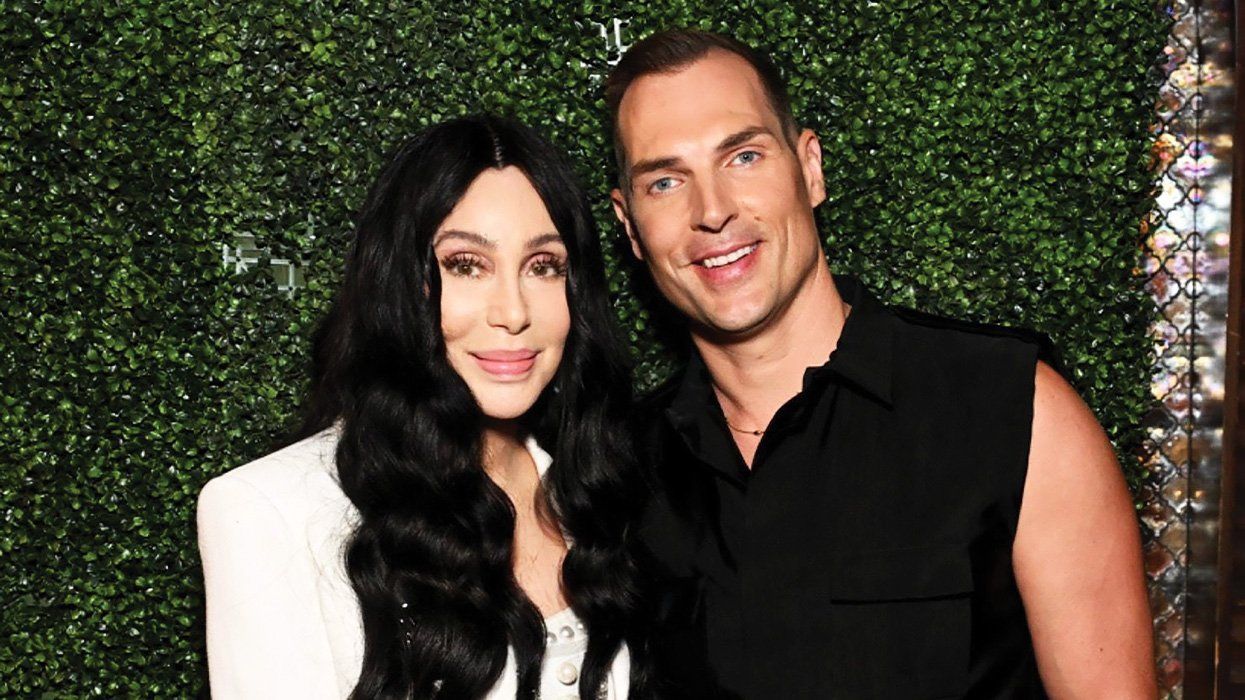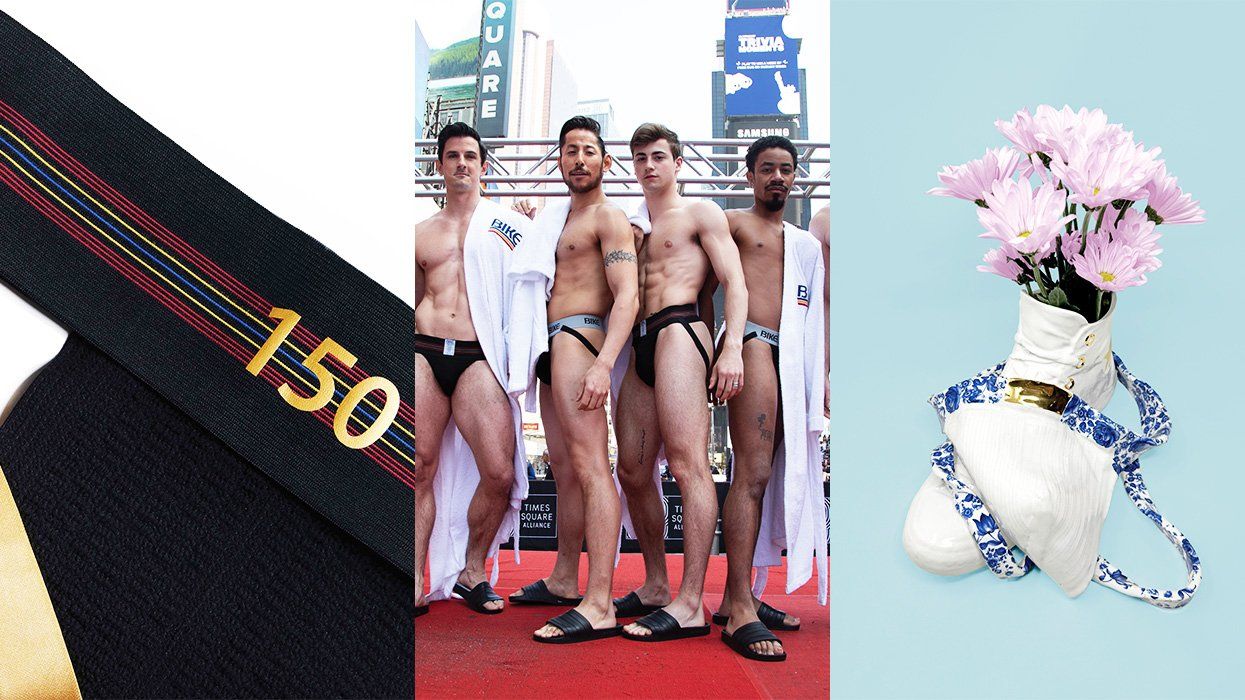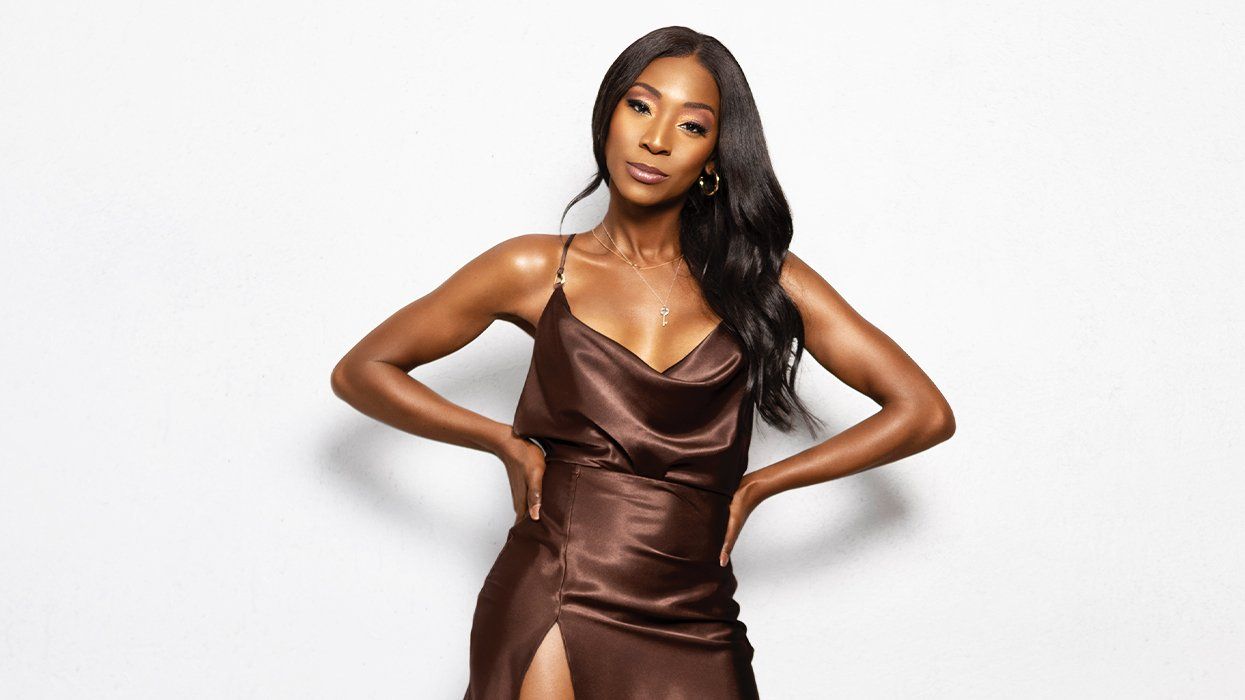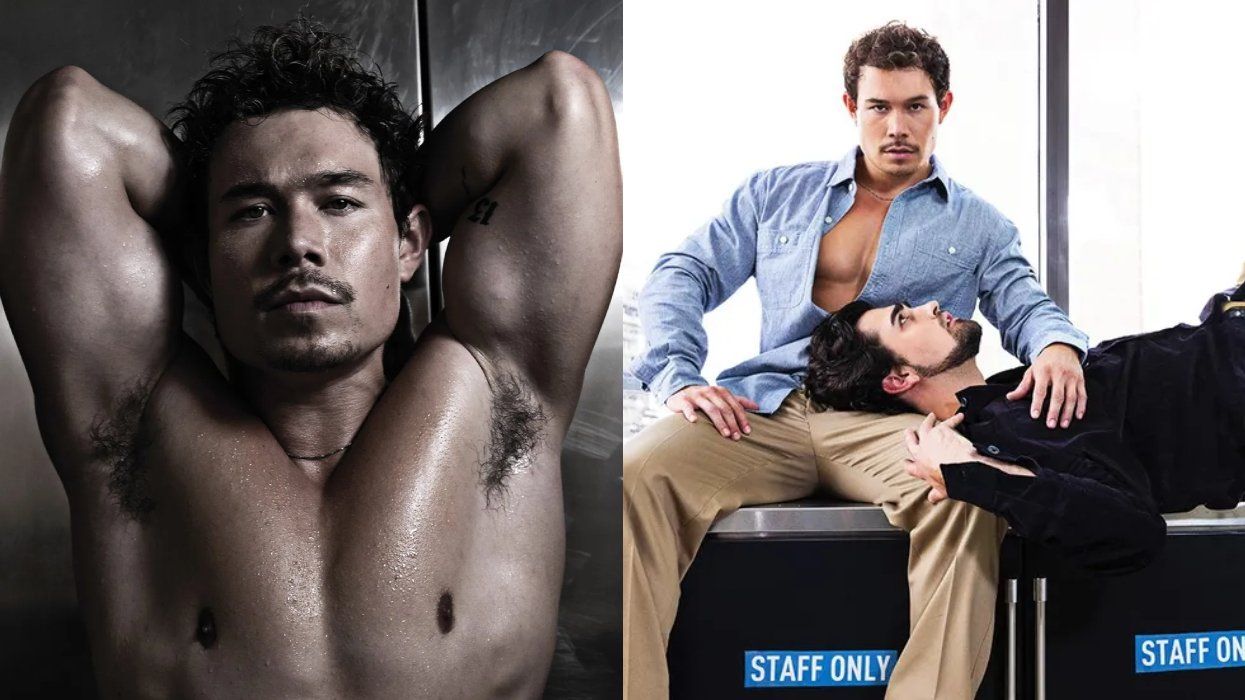When Jerrod Carmichael arrived at the Emmys this year, he sported an absurdly large, open-chested fur coat. Historically at events, the comedian has worn variations of a black suit to be "a little less conspicuous." But on this recent red carpet, dressed in a splashy showpiece that highlighted a golden necklace and shimmering chest...we all saw him.
And when the 35-year-old arrives on set for his Out100 cover shoot -- in shorts and a wrestling championship belt in hand -- I see him too. Carmichael isn't an aloof Hollywood player. Rather, he's terrified at times -- and willing to admit it -- including at the responsibility of being the cover star of a queer magazine.
"I feel very new," he admits. Ask him about the obstacles he's overcome this year, and he stammers. Even the question is a bit much. "My legs started shaking with fear," he says. "I want to coil up and take a nap."
For the actor, producer, and comedian, 2022 was a pivotal year. With the release of his Emmy-winning HBO stand-up comedy special Rothaniel, Carmichael accomplished something he'd been afraid to do for years. He came out to his audience -- and the world. He knew, in that moment, it was time.
"Sometimes you find a moment where you can face it," he says. "That's the hard thing, just consistently facing things. You just kind of leap. It's kind of like a roller coaster or skydiving, where it's going to be scary and big but you're accepting it's not going to kill you. It's how I kind of learned how to swim, knowing the water is not trying to kill me."
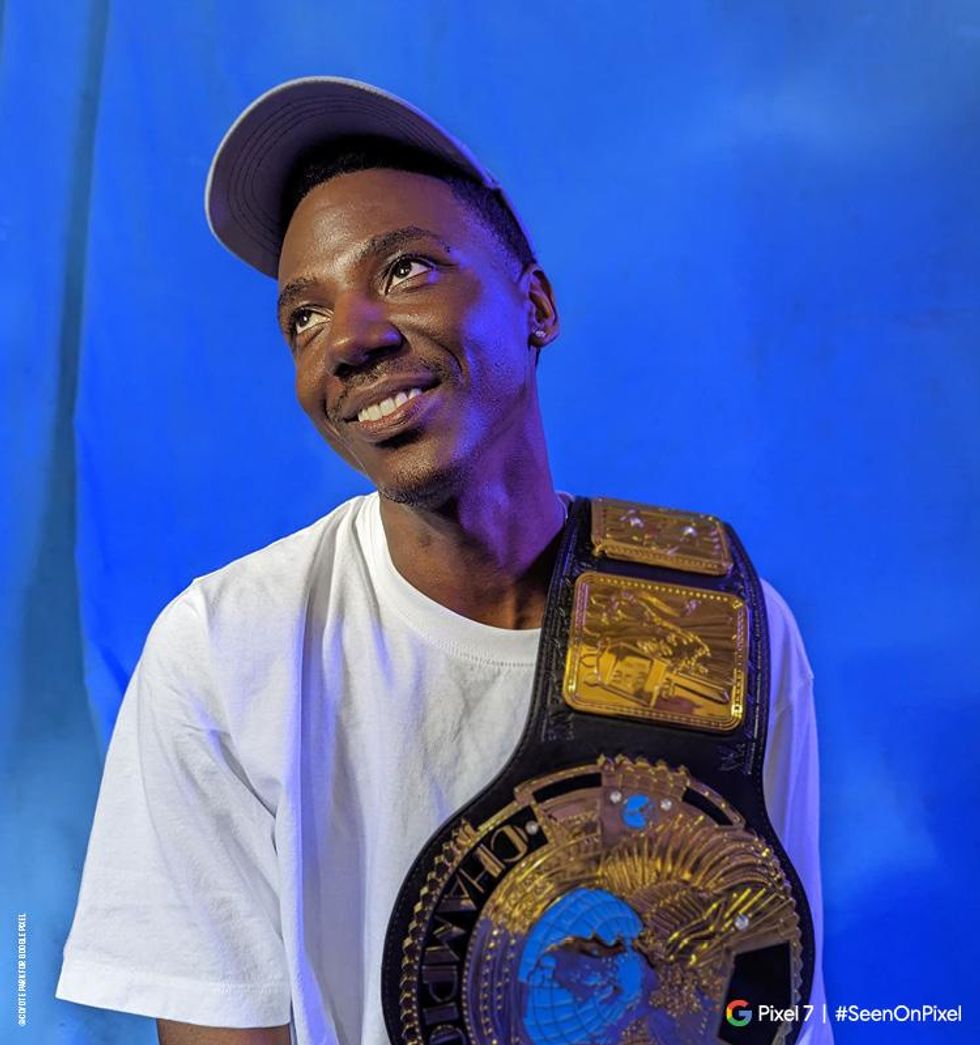
Carmichael makes clear he's a work in progress -- just like his coming out. This journey began in 2019 when he admitted in his Home Videos documentary that he'd hooked up with men before, though he stopped short of labels. But fans have been seeing him since NBC's The Carmichael Show, which from 2015 to 2017 was the smartest and most politically charged sitcom on network TV.
"I always think about that as just a fun experiment," Carmichael recalls. In classic sitcom style, the characters (loosely fictionalized versions of Carmichael's family) represented different archetypes of Black thought. They tackled tough topics like Black Lives Matter protests and LGBTQ+ rights with humor. Still, the show was snuffed out after three seasons.
"I really don't know where else it could have gone," admits Carmichael, the co-creator and lead actor. "I think I maxed out on where I was in life, the conversations I could have, and those battles I was having with my family. Sitcoms, for me, they're really exciting when they're about something real -- and then it can get diluted." Of the 32 episodes that aired, the star liked 23 of them. "That was good. Only me and the creator of [The Honeymooners] can just feel so satisfied on so few episodes."
And while Carmichael surprised scores of viewers at home and in the studio audience with stories of authenticity and grounded relationships, he really had an audience of one in mind.
"I was always trying to get my mom to stop washing the dishes," he says. "...And if something on TV caught her attention, she would peek her head in the room. And I was always writing to that, trying to...be something that could cut through and be real enough to get her to peek her head in and hear me."
"Comedians, no matter what the age, always make and create with the idea of the approval of someone in mind," he says. "And usually, it's our parents."
"I'm thankful that my eternal quest has been to try and change my parents' mind," he adds. "And in some way, while I'm in desperate need of that approval, I feel free from it. I'm free -- and I'm desperately trying to get it back always so it just makes for some weird, wild stuff."
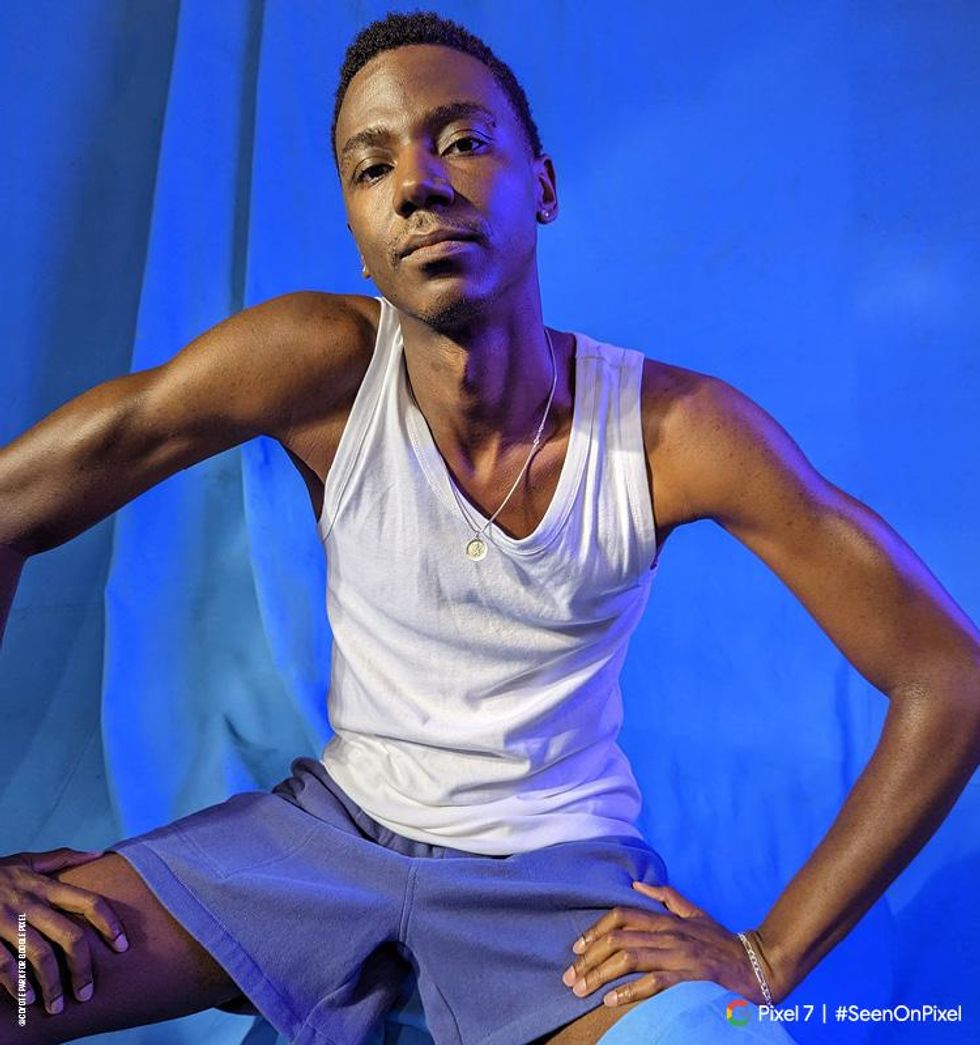
For most, coming out is an individual accomplishment. But from Rothaniel to the Emmys, Carmichael is negotiating his gayness with the public as well as loved ones who may not be accepting. The result is far from a happily-ever-after. But it resonates with the actual lived experiences of LGBTQ+ people.
"Yeah," he admits, "it's uncomfortable, but that's exciting to me. It feels true and often not seen, because I found in my own life, I was trying to run from discomfort myself. And then a lot of times, by the time creative people make something, we've written away from [reality]."
For him, like many of us, the journey is unresolved, which Carmichael says makes it feel true. "I did Marc Maron's podcast," he recalls, chortling. "It was funny, at points a bit contentious. He told me he was upset that Rothaniel didn't have a closer. I was like, 'I think you're missing the point. Oh, you mean my current life?'"
Thus, the performance, the special, and even this article become part of Carmichael's journey. "[You're] trying to pull all of your resources to express yourself as clearly as you possibly can," he explains. "...Rothaniel is as much me speaking to my family as trying to make sense of it and making a comedy special."
While he's breaking down the divisions between art and family, Carmichael is pushing against the media tropes of (usually white and middle-class) gay men and their fiercely protective mothers. In reality, these relationships are far more complicated.
He's not the only gay creative tackling this topic. In Michael R. Jackson's Tony-winning musical A Strange Loop, protagonist Usher deals with rejection by his homophobic parents for being a fat gay Black man. This fight with his mother and her Bible is center stage in "Precious Little Dream / AIDS Is God's Punishment," sung with a preacher's intonation.
In this dueling duet, Usher's "mother is not accepting him but still beckoning him to come home: It's a rejection and a hug at the same time. It's an odd, weird, devastating feeling," says Carmichael, for whom this feeling is familiar.
With his mom, "I remain hopeful in motion," he says. "It took me some time to say it. The relationship is still strained, I'll be honest, but see where it goes."
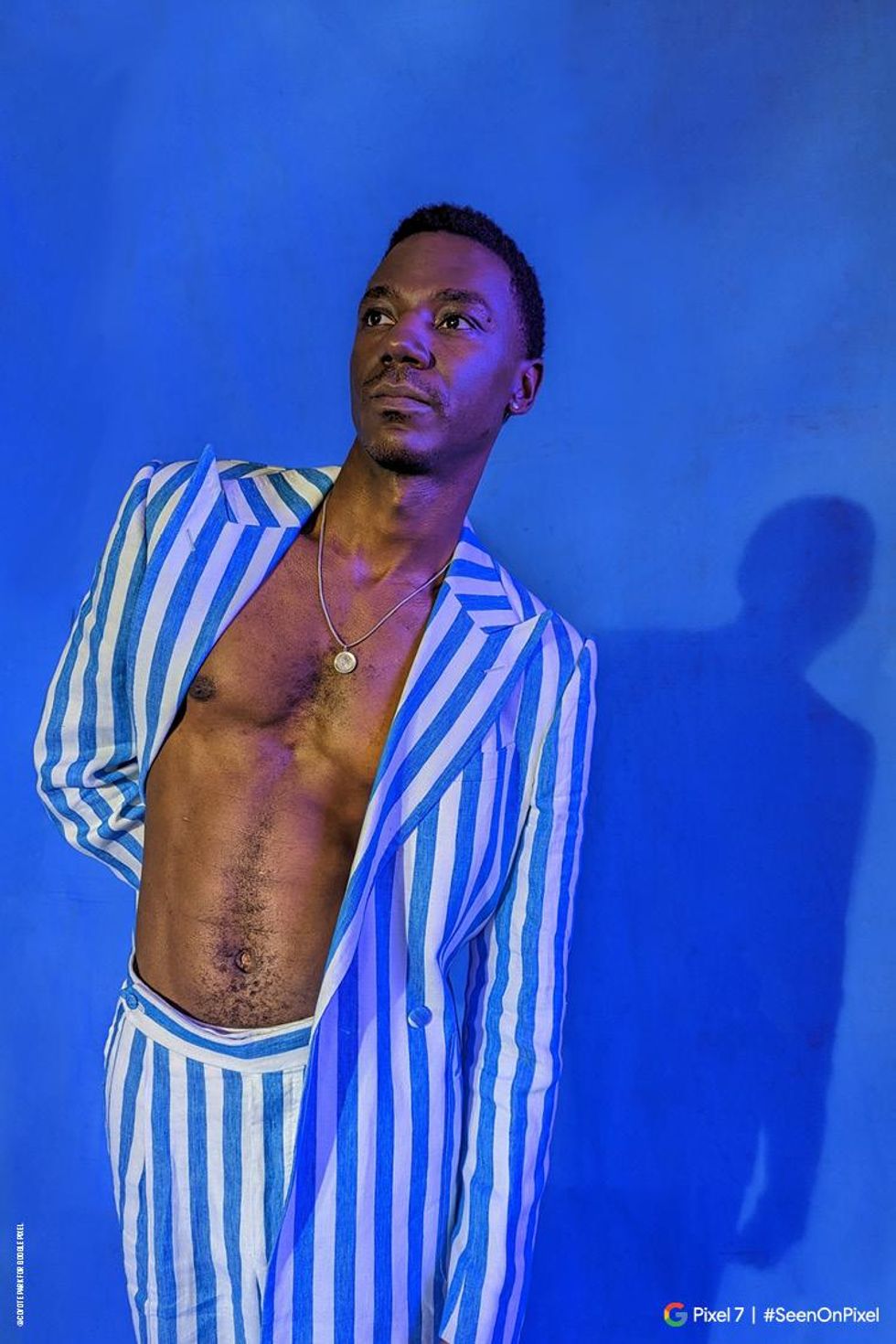
Of course, not every reaction to Carmichael's coming-out has been negative. On Late Night With Seth Meyers, he pointed out how in New York City he received applause for saying he's gay: "Life doesn't work like that for the rest of it."
"You know what's funny? Honestly, it's really the nonqueer people who love to tell me, 'It gets better,'" he says. "I only hear straight people tell me that and white people tell me 'Black Lives Matter.'"
Mothers aside, Black women rank among the most supportive -- though some bristle when they find out he dates white men. In Rothaniel, Carmichael mentions this and receives pushback in the room from an audience he's encouraged to be vocal. Even Twitter is abuzz about his attraction. In reality, it's much ado about nothing.
"I've never really been in a substantial relationship," Carmichael admits. "Boyfriend's just better than 'guy I've been dating or [hooking up with].' It's a rhythm thing. I think a lot of people got caught up in that as some declarative statement. In reality, probably the loves of my life have been Black men who definitely left me devastated but hanging on." While he understands the consternation around Black men who are only attracted to white men, in his era of honesty, he's not going filter himself to stay on Twitter's good side. (In this vein, he describes himself as "a lifelong top," albeit one who is "open to change.")
This is Rothaniel Jerrod Carmichael, a man standing in the public square methodically negotiating who he is and loves. Making that work, as he noted when Rothaniel won the Emmy for Outstanding Writing for a Variety Special, is "of great personal consequence to me." But it's work that is significant to legions of others.
"That's what I'm learning in real time," he says. "I'm understanding that being open to love is a big part of Rothaniel, just accepting [it]. I was so terrified that it shut me off from receiving love, and that's changed."
talent JERROD CARMICHAEL
photographer COYOTE PARK for GOOGLE PIXEL 7 coyotepark.format.com @coyotepark
executive producer & senior director TIM SNOW @snowmgz
creative director RAINE BASCOS
1st assistant MASON ROSE masonrose.photography @masonrose__
light tech EVADNE GONZALEZ @evadnegonzalez
digitech MERLIN VIETHEN
video AUSTIN NUNES austinunes.com @austinunes
producer STEVIE WILLIAMS x2production.com @beingstevie of X2 Production
set designer ORRIN WHALEN orrinwhalen.com @orrinwhalen
art assistant BRANDON LOYD @ohmylord
stylist EDWIN ORTEGA edwinortega.com @edwin.j.ortega
styling assistant BROOKE MUNFORD @brookesquad
hair/groomer ABRAHAM ESPARZA abrahamjesparza.com @thisisbabe
manicurist RILEY MIRANDA @rileymiranda.nails
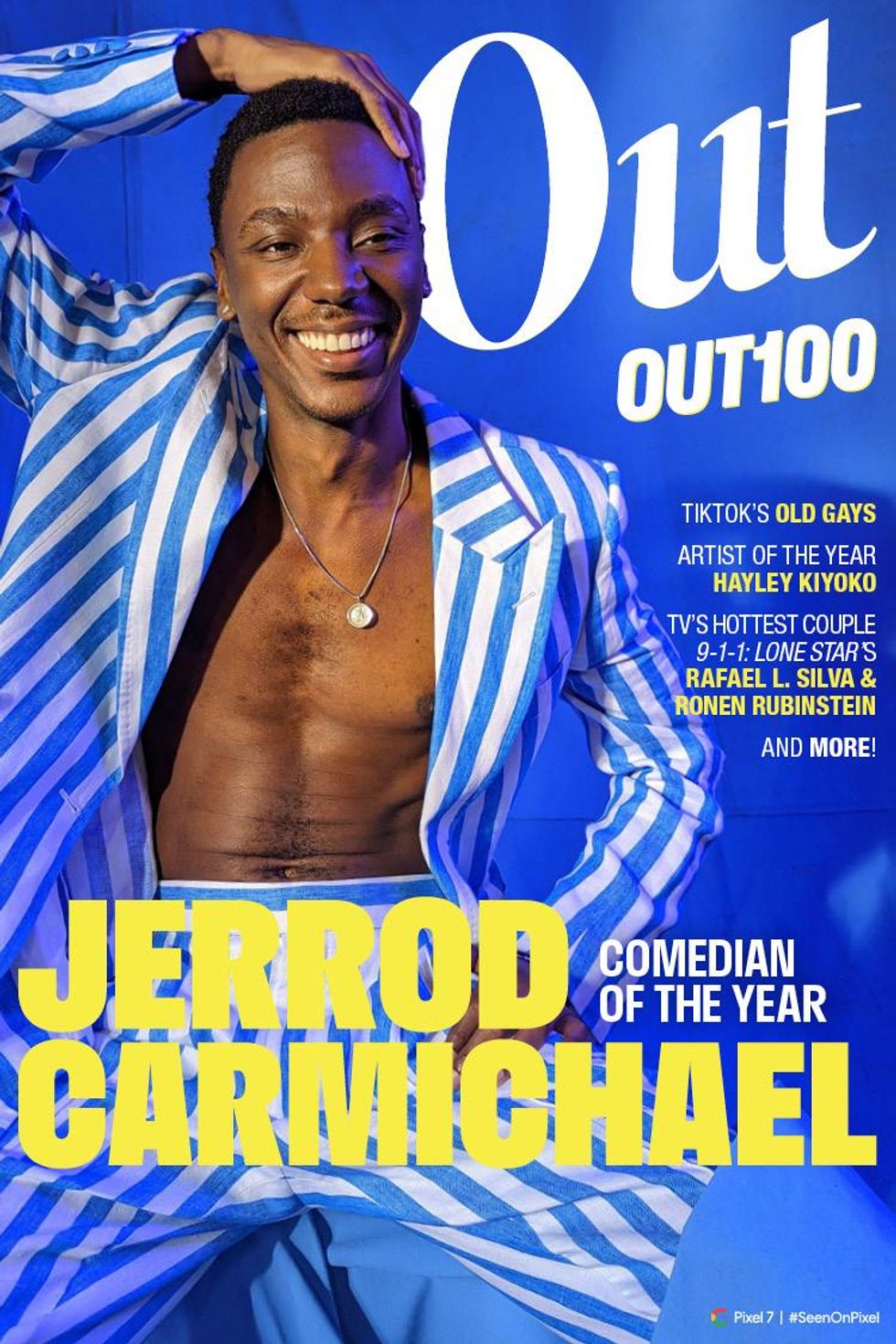
This article is part of Out's November/December 2022 issue, out on newsstands November 8. Support queer media and subscribe -- or download the issue through Amazon, Kindle, Nook, or Apple News.



